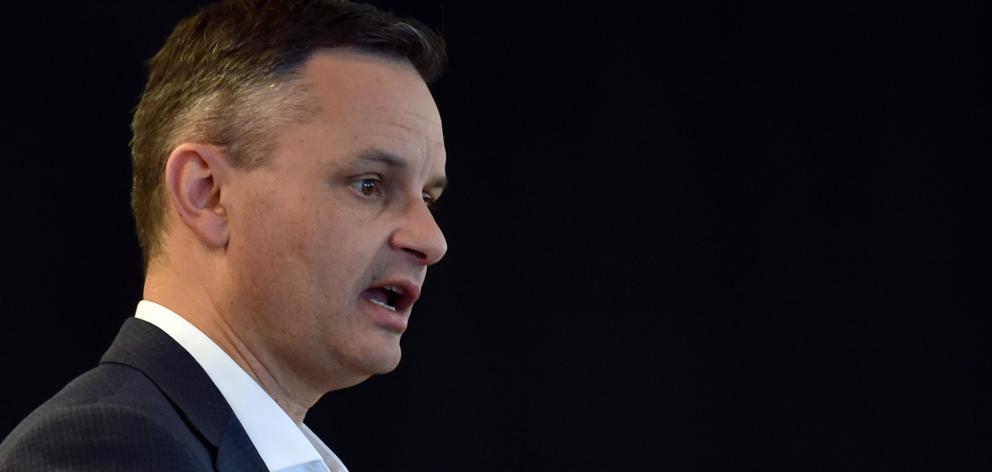
Climate Change Minister James Shaw has stepped into the lions' den in the last week.
Shaw spoke in deepest blue territory on Thursday at a Federated Farmers meeting in Southland, and today was at a farmers forum hosted by DairyNZ in the Waikato.
Those appearances came immediately after the Greens-supported Government made announcements which directly affect dairy farmers, including an end to irrigation subsidies and proposals to effectively limit cow numbers by setting a cap on farm run-off.
Shaw, the Green Party co-leader, took a conciliatory approach today in a half-hour speech which did not criticise the previous government or the agricultural sector's environmental record once.
There was a notable contrast in tone to Environment Minister David Parker, who on the weekend threatened regulations for polluting farmers who did not get into line.
At times, Shaw's speech veered towards flattery.
"I want you to hear this from me – I think you're doing a great job," he told the farmers' forum.
"That may come as a bit of a surprise to people given some of the headlines over the last few years. But the progress that I have seen in the last few years I just think has been absolutely remarkable."
He offered an olive branch to farmers, saying he wanted to destroy the myth that the Government's approach to improving the environment was "all about the agricultural sector".
The National Party and its farming base accused Labour and the Greens of creating an urban and rural divide during the election campaign, in particular through the now abandoned promise to tax rural water use.
That theme has been revived after the Government's announcements on oil and gas exploration and regional fuel taxes.
"That really distresses me," Shaw said. "Because if we allow that to take hold and if that continues then we are simply going to continue the argy-bargy that we have had for the last couple of decades and not make any progress at all.
"This is about all of us, and everybody has got their part to play."
Shaw went as far as echoing some of agricultural sector's complaints that urban areas were responsible for a large part of the country's environmental problems.
Auckland City was the source of 20 per cent of the country's emissions, he said.
"We've got to bend the curve in Auckland. If we don't, nothing's going to happen in terms of making progress on our targets."
There was only a brief reference to making agriculture pay for its greenhouse gas emissions or other regulations which will affect farmers.
Instead, the speech focused on the need to change the way climate change was discussed in this country.
To date, adapting to a low carbon economy has been thought about as a sunk cost rather than an economic opportunity, he said.
"It is the nature of thinking about it as a cost … that has pulled us apart, meaning that we haven't been able to make progress on this."
As other countries reduced their transport and energy emissions, their agricultural emissions grew in proportion, and they would be looking to New Zealand in five years' time for leadership on how to reduce them.
"Every country in the world is heading in that direction. If we can get there first we can seize that opportunity and it we don't, somebody else will."
Pointing to New Zealand's tumultuous summer of drought and cyclones, Shaw warned that agriculture was more exposed to climate change than other sectors.
This would partly be tackled through the Government's Zero Carbon Act, which would consider how to cover the costs of adapting to rising sea levels and other impacts.
The Act, which is expected to pass into law next year, will also establish an independent Climate Commission which will guide the Government to reaching its emissions targets.
The Act will lock in a target of net zero carbon emissions by 2050, which is partly designed to give businesses certainty to begin investing in low carbon or green initiatives.













